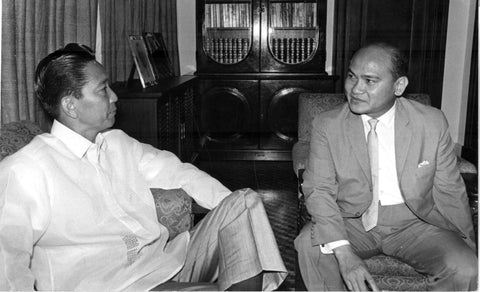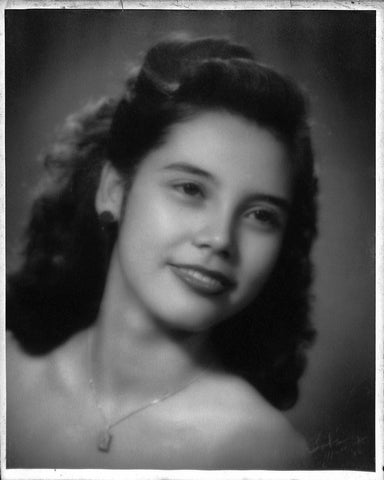News
Follow NUS Press on
Five Minutes with Lisandro E. Claudio July 18, 2017 15:30
In March earlier this year, Lisandro E. Claudio published Liberalism  and the Postcolony: Thinking the State in 20th-Century Philippines. Prior to this groundbreaking work, historical scholarship on liberalism in the Philippines was largely unexplored. In this edition of Five Minutes With…, we chat with Claudio—an Associate Professor of History at Manila’s De La Salle University more affectionately known as Leloy—about how his book was born, his experience of writing in Kyoto, free dinners, politics, and his revolutionary of a grandmother.
and the Postcolony: Thinking the State in 20th-Century Philippines. Prior to this groundbreaking work, historical scholarship on liberalism in the Philippines was largely unexplored. In this edition of Five Minutes With…, we chat with Claudio—an Associate Professor of History at Manila’s De La Salle University more affectionately known as Leloy—about how his book was born, his experience of writing in Kyoto, free dinners, politics, and his revolutionary of a grandmother.
Although your book is concerned with Philippine politics and intellectual history, it was written during a two-year postdoctoral fellowship in Kyoto. How did that distance help shape your critical views?
I’ll use this question as an opportunity to thank my host institution. The Center for Southeast Asian Studies (CSEAS) at Kyoto University was the perfect place to write a book on a Southeast Asian state. For one, it is close enough to allow regular trips back to the region. So, in a sense, I actually did not have much distance. What I had was time to think and write amid the monastic yet urban atmosphere of Kyoto, while being able to easily book a flight to the Philippines if I needed to plug gaps in the research.
Secondly, CSEAS does Southeast Asian Studies for Southeast Asians. Its sensei have solid connections with the region, and they have a clear idea of their audience. My primary audience has been and will always be Filipinos, who think about and debate the future of our political community. Kyoto reinforced this. It is not a place that forces you to get into an academic rat race, where you aim to publish with American publishers while jumping on the latest American trend (whatever that may be—I think it’s affect theory at the moment). I’d like to think that because of the culture of CSEAS, I produced a book for Filipinos and Southeast Asians, written without paying obeisance to trends in cultural theory. And because I was in Kyoto, I was encouraged to publish in the premier academic press in Southeast Asia (that’s you guys!), and co-publish with the premier academic press in the Philippines (Ateneo de Manila University Press). If people outside my intended audiences wish to pick up the book because they are interested in liberalism, of course, that would make me happy. They can buy something from Singapore or Manila. But the primary goal is to talk to Filipinos concerned about the Philippines qua state.
Japan is wonderful because, like the US, it has money for research, but without the trendiness. And this was a very square, untrendy book about a philosophical idea that is not as exciting and revolutionary as postcolonial theory or even good ole’ Marxism. Moreover, if I were in the US, I might have had to factor identity politics into the manuscript, since Filipinos there are almost obligated to ‘interrogate’ or ‘problematize’ their subjectivities. But in Japan, you do what you want. So I wrote a book that conceived of “Filipino” as a political community as opposed to cultural identity. I wanted to write a book about civic nationalism/patriotism, unabashedly anchored on conceptions of the state.
Finally, Kyoto provided me the best mentorship. I sped through my PhD in three years in Australia, and felt a bit ‘undercooked’ at the end of it—not because my teachers failed to guide me, but simply because I was in such a rush to complete the degree (I was homesick in the beginning). Writing this book felt like writing a second dissertation. In the process, I benefited greatly from CSEAS’ Caroline S. Hau, who made me think about the relationship between liberalism and our vague notions of who the ‘elite’ are (while buying me multiple dinners). She also made me, almost against my will, think about liberalism and macroeconomics, which produced the chapter on Salvador Araneta. I owe so much to Carol for gently nudging me out of my comfort zone.

The nationalist economist Salvador Araneta pictured with family at Far East Air Transport, Incorporated, n.d. (Image credit: Manila Times Photo Archive, Rizal Library, Ateneo de Manila University).
You mention in your book’s introduction that you are interested in “bureaucratic writers and pencil-pushers, who aided the transition of a nation from colonial rule to independence” over other groups with nation-building interests. What attracted you to these particular perspectives of liberalism and postcolonialism?
As I said earlier, I’m attracted to, for lack of a better term, squareness. This is why a section of the introduction is called “a defense of boring politics.” Why must academic work have to be sexy or provocative? Especially when the topic is a postcolonial society like the Philippines. My sense is that, since academics like me are square personalities anyway, we should also write about square topics, like, yes, the history of pencil-pushers. Come on, how many academics are really revolutionaries? And yet some of them write like they’ll be the next Che Guevara. I’m only being slightly facetious here.
In Southeast Asian studies, we’ve been so obsessed with insurgencies, millenarian movements, anarchism, mythological and magical interpretations of politics, et cetera. I almost feel like there is an element of self-Orientalization. Maybe we should also talk about reason and Enlightenment and not be ashamed of it.
I think there is a need to grapple with Southeast Asian modernities that are in dialogue with Western Enlightenment. Unearthing the history of the Philippine liberal tradition was my way of doing this. I have a number of friends in Thai studies who are doing similar things, looking at Thai liberalism. I hope we can push the limits of Southeast Asian studies and write more histories of square people.
You also observe that, in Filipino history, liberalism is often excluded from the records despite its close ties to Philippine nationalism. How did you come into this insight and what was the first step you took in addressing this exclusion?
Yes, look at our national hero José Rizal, for example. With perhaps the exception of John N. Schumacher and Nick Joaquin, very few writers talk about him as a liberal. Always a nationalist, but never a liberal. But he was so obviously a liberal! The guy was perennially talking about the rights of man and the need to defend liberty. He even wrote numerous essays against the absolute power created by martial law (how proto-anti-Marcos, right?).

Former president Ferdinand Marcos (left), who ruled the Philippines from 1965 to 1986, meeting the educator and statesman Salvador P. Lopez, n.d. (Image credit: Manila Times Photo Archive, Rizal Library, Ateneo de Manila University).
I don’t remember exactly how I came to my insight about the exclusion of liberalism from the national narrative. But I do remember my other mentor, Patricio Abinales, once asking me—way before I decided to write this book—why nobody had written a history of Philippine liberalism. I guess I never got that question out of my head. So I ended up working on this book.
Maybe the exclusion of the liberal tradition comes from the fact that much of our country’s liberalism is of American vintage (although, as I mentioned earlier, Rizal’s generation was already liberal). In the 1970s, Philippine historiography fell prey to a rabid, almost ethnocentric nationalism that dismissed anything from the US or the West as external to the Philippine experience, and that included liberalism. It had a very insidious effect, and the rhetoric survives today, mouthed, no less, by our dictatorial baby boomer president, Rodrigo Duterte.
You know what makes my blood boil? When Filipino politicians, especially supporters of the president, say Filipinos should challenge “Western liberalism.” As if liberalism were so external to our national experience.
How do we go beyond the exclusion of liberalism? I’m very practical about this. Perhaps we should stop obsessing about the provenance of an idea. Instead, maybe we should ask if an idea, regardless of where it comes from, is a good one. In the book, I tried to make the case that liberalism is a good idea for the Philippines, especially during the age of what commentators have called “Dutertismo.”
What were the major obstacles you faced in sourcing material for your book?
Nothing much. The advantage of intellectual history is that you work largely with published material. The most difficult chapter to research was the one on Salvador P. Lopez, because he lacked vanity. The rest of the intellectuals in the book loved to self-publish their speeches, but SP was too self-effacing (unlike his hucksterish, but formidable, mentor, Carlos P. Romulo) to play that game. With the help of my friend Aaron Mallari, I was able to dig through the SP Lopez papers in the University of the Philippines Diliman. It’s a treasure trove, actually. More people should go there—if they can take the heat and the dust.

SP Lopez addressing students, teachers, and staff during the Diliman Commune of February 7, 1971. (Image credit: Manila Times Photo Archive, Rizal Library, Ateneo de Manila University)
In your afterword, you offer a fifth liberal to join the four historical protagonists in your book—your maternal grandmother, Rita D. Estrada, who had been a professor at the University of the Philippines. Based on your tender and illuminating portrait of her, she was a remarkably charming and extraordinary woman. Would you consider writing a book on her one day?

Rita D. Estrada, the author’s grandmother and a revolutionary liberal in her own right. (Image credit: Lisandro E. Claudio)
Thank you, I tried to conjure the Lola Rita of my memories, while representing her as an intellectual in her own right.
But, no, I don’t think I'd be able to write a full book about her. There isn’t enough material. My lola was a quiet intellectual who did not leave behind a lot of writings. The epilogue of the book is enough of a tribute to her, and enough naval-gazing for me. I enjoyed writing it, though, and it made my mom cry.
